|
On the last Wednesday of every month, I serve up a potpourri of advice, inspiration and other tidbits I've come across in recent weeks. This being mid-summer, and finally being free of the boot I've been wearing for a foot fracture, I'm sharing quotes about summertime and freedom. How's your summer going? Everything good, everything magical happens between the months of June and August. Winters are simply a time to count the weeks until the next summer. -- Jenny Han, The Summer I Turned Pretty Freedom is the basic condition for you to touch life, to touch the blue sky, the trees, the birds, the tea, and the other person. -- Thich Nhat Hanh, Anger: Wisdom for Cooling the Flames Summer afternoon—summer afternoon; to me those have always been the two most beautiful words in the English language. -- Henry James Rest is not idleness, and to lie sometimes on the grass under trees on a summer's day, listening to the murmur of the water, or watching the clouds float across the sky, is by no means a waste of time. -- John Lubbock, The Use Of Life At these times, the things that troubled her seemed far away and unimportant: all that mattered was the hum of the bees and the chirp of birdsong, the way the sun gleamed on the edge of a blue wildflower, the distant bleat and clink of grazing goats. -- Alison Croggon, The Naming One benefit of summer was that each day we had more light to read by. -- Jeannette Walls, The Glass Castle Again and again, the cicada's untiring cry pierced the sultry summer air like a needle at work on thick cotton cloth. -- Yukio Mishima, Runaway Horses: The Sea of Fertility, 2 Life, now, was unfolding before me, constantly and visibly, like the flowers of summer that drop fanlike petals on eternal soil. -- Roman Payne, Rooftop Soliloquy I have only to break into the tightness of a strawberry, and I see summer – its dust and lowering skies. -- Toni Morrison, The Bluest Eye The crickets felt it was their duty to warn everybody that summertime cannot last for ever. Even on the most beautiful days in the whole year – the days when summer is changing into autumn – the crickets spread the rumor of sadness and change. -- E.B. White, Charlotte's Web Summer, after all, is a time when wonderful things can happen to quiet people. For those few months, you're not required to be who everyone thinks you are, and that cut-grass smell in the air and the chance to dive into the deep end of a pool give you a courage you don't have the rest of the year. You can be grateful and easy, with no eyes on you, and no past. Summer just opens the door and lets you out. -- Deb Caletti, Honey, Baby, Sweetheart 'Cause a little bit of summer's what the whole year's all about. -- John Mayer Read more summer quotes here.
6 Comments
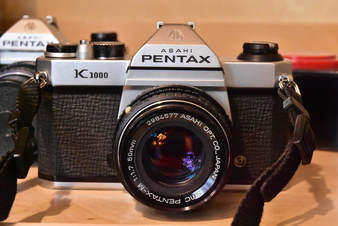 Is taking pictures of cameras a sign that photography is taking over your life? Is taking pictures of cameras a sign that photography is taking over your life? I didn't know whether to laugh or wince when I read a recent post by blogger/photographer Ruth Daly, titled "You might have a problem with photography if . . ." The post listed twenty signs that photography is taking over your life. I had to admit, quite a few items on the list applied to me. Okay, nearly all applied, but particularly on-point were such signs as "You've lost track of how many times you've burnt breakfast/lunch/dinner because you 'just popped outside for a minute to take a photograph' " and "You realize your blog posts have gradually become heavier on photographs than writing." Too true! And just when I was on the verge of doing another all-photo blog post. But as I considered Ruth's list and how easy it is to become consumed with an activity that once was just an occasional pastime, I started thinking more generally about passions. When and how does an interest become a passion? When does a passion become an obsession? How can we nurture our passions without going overboard? 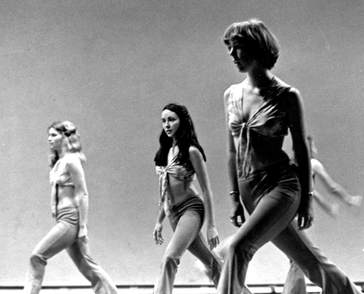 My fascination with dance lasted decades My fascination with dance lasted decades I'm something of a serial passion-cultivator. In the course of my adult life, I've gotten all wrapped in an ever-shifting string of engrossments: alternative education, horticulture and botany, dance, insects, science writing, motorcycling, memoir writing, yoga and now photography. Each of these preoccupations started with a glimmer of interest that grew into a near-magnetic fascination with anything and everything related to the topic or activity. 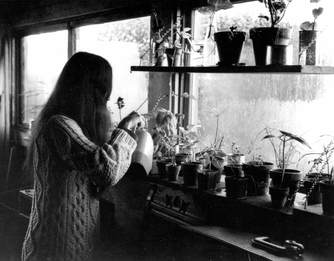 Propagating and selling plants was another early passion. I spent hours studying techniques, growing plants from seeds and cuttings, working in a commercial greenhouse, and selling my own plants at local fairs. Propagating and selling plants was another early passion. I spent hours studying techniques, growing plants from seeds and cuttings, working in a commercial greenhouse, and selling my own plants at local fairs. Before we get into how interests evolve into passions, let's think for a minute about what, exactly, distinguishes an interest from a passion. LEGO enthusiast Paul B put this way on a LEGO forum (and by the way, did you even know there were LEGO forums?): An interest is "something you choose to do when you have a little spare time." A passion is "something that you consider fundamental to your life." He went on to use this fishing analogy:
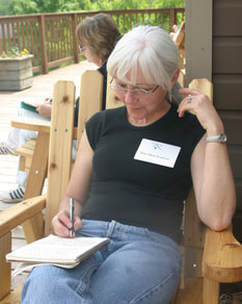 Indulging my passion for writing at the Bear River Writers' Conference Indulging my passion for writing at the Bear River Writers' Conference By that standard, writing is clearly a passion for me. There have been times when I've tried to do less of it, to make room for other things in my life, but writing feels so essential to my being, I have to keep coming back to it. A glance at the magazines stashed beneath my coffee table reveals that fully half of them are about writing; I belong to a writers' group; I blow my vacation budget traveling to writers' conferences; and I plan my days around my writing time. Yep, it's a passion. 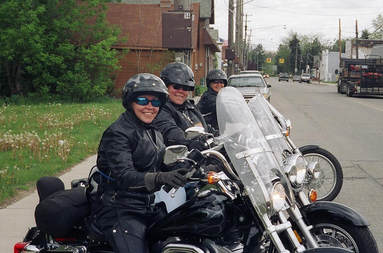 Riding with the Chrome Divas Riding with the Chrome Divas It was the same with motorcycling. I devoured motorcycle magazines and books, belonged to a women's motorcycle club and rode as often as I possibly could. What's more, with both writing and motorcycling, as well as most of my other passions, I've experienced an intense desire to learn more and keep improving my skills. That, some people say, is what tips the balance from interest to passion. Writing on the knowledge platform Quora, Justin Tan, founder of the I'd Hike That online community and apparel store, puts it this way: "The biggest difference between a passion and an interest is when you deliberately develop a mindset to improve . . . Having that mindset and desire, plus doing it every day is what separates a passion [from] an interest." That mindset, however, can lead to a kind of tension that turns a relaxing hobby into a drive. Photographer Danny Santos II wrote about this phenomenon on his blog, Shooting Strangers. "When I started photography out of interest, it was all hunky dory. I was a kid with a new toy discovering new possibilities. But pretty quickly, I've grown easily unimpressed with my own shots." His dissatisfaction led to an almost frantic desire to get better and better shots, which, in turn, led him to spend more and more time taking photographs. A comment from a speaker at an alumni association meeting session on finding your passion summed up precisely what Santos had been feeling as his interest in photography shifted to something more intense: Passion exists when attraction is coupled with friction. At its most positive, friction keeps the interest fresh. But sometimes, friction is a sign that passion has turned to obsession. 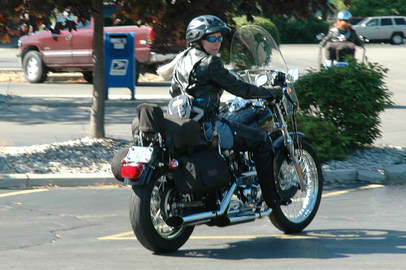 When passion becomes obsession, discontent can result When passion becomes obsession, discontent can result That's what happened to me with motorcycling. I loved it so much, I didn't want to do anything else. I found myself turning down invitations to really fun events that might cut into my riding time. I resented commitments I had to keep on days that were perfect for riding. I saw less of my non-riding friends. Other interests languished. As much as I adored riding, I realized my obsession with it was creating discontent and diminishing my life. Eventually, I came to see that I could still enjoy riding if it was part of a suite of pleasurable activities, not the only one. The funny thing was, I probably rode just as much as before, but I found I could also be happy when I wasn't riding. 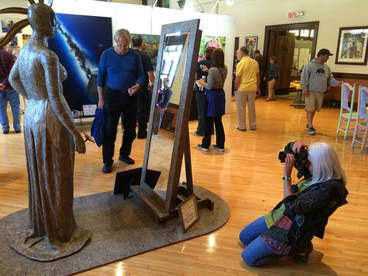 My photography habit? Not a problem! My photography habit? Not a problem! Now, when I find myself getting immersed in an activity, I try not to let it interfere with the rest of my life. Which brings me back to Ruth Daly's post on photography. After reading it, I asked myself, Do I have a "problem" with photography? Not yet. Right now, it's a pleasant pastime. I pore over photography magazines and books; I practice almost daily, in an attempt to improve. But I'm not turning down invitations to make time for my passion. I will admit, though, I'm really happy when those invitations take me somewhere I can bring my camera. What are your passions? When did you know they were more than mere interests?
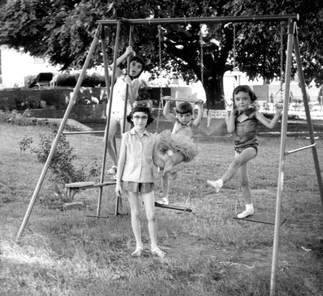 Costumed up for a backyard circus (except cousin Mary, who was probably the director) Costumed up for a backyard circus (except cousin Mary, who was probably the director) As a kid, summer was one long stretch of opportunity. More time to play—yay!—but even better, more chances to make stuff. Popsicle stick baskets at Girl Scout day camp, Plaster of Paris plaques at vacation Bible school, clay doodads and woven plastic lanyards at my school's summer recreation program. Plus an imaginative assortment of creations my neighborhood playmates and I dreamed up, like costumes for our backyard circuses and hula hoop shows. Back then, none of us needed tips on how to boost our creativity. It just came naturally in those early years, before we felt the need to justify time spent on such pleasant pursuits. Before we learned to fear criticism and failure. 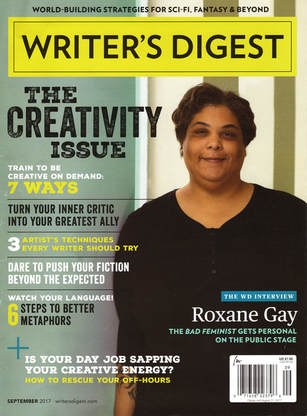 The latest issue of Writer's Digest focuses on creativity The latest issue of Writer's Digest focuses on creativity I still see summer as an ideal time to pursue creative projects, and I guess I'm not the only one. The cover of the latest issue of Writer's Digest, billed as "The Creativity Issue," hooks readers with such headlines as "Train to Be Creative on Demand: 7 Ways," "Turn Your Inner Critic Into Your Greatest Ally," and "3 Artist's Techniques Every Writer Should Try." Inspired by the magazine—and those summer breezes wafting through my open windows—I went on my own quest for ways to kick start creativity. Here are seven suggestions that appealed to me. (Sources are at the end of this post.) 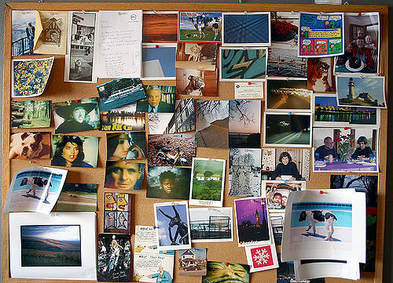 Be a hunter-gatherer Collect ideas, images, random thoughts, quotations—anything that catches your attention—and stash them where you can peruse them at your leisure. That place might be a pocket notebook, a file folder (physical or virtual), a drawer filled with paper scraps, a box on your desk or a bulletin board in your studio. Resist the urge to organize your collection. Random associations that emerge from the jumble just might trigger original ideas. 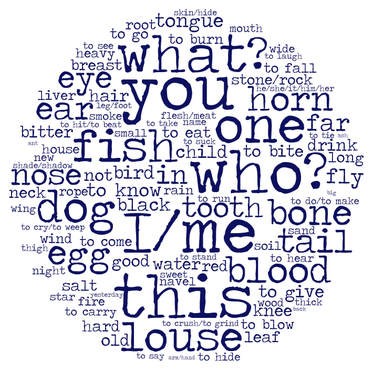 Create connections Speaking of random associations, you don't have to wait for them to appear, you can prod the process. On a blank sheet of paper, write down whatever words come to mind. The words can represent ideas, categories, topics or objects, or they may just be interesting in their own right. Randomly draw arrows between pairs (or groups) of words. Use the results to inspire a poem, a story, a collage or a painting. 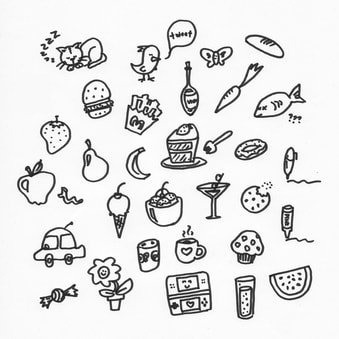 Doodle I know—you got in trouble for doing this in school, but now doodling is in vogue. Witness the recent book, The Doodle Revolution: Unlock the Power to Think Differently, which posits that doodling is no mindless waste of time; it's a focusing technique that helped Einstein, Edison, Henry Ford, Marie Curie and other brainiacs innovate and problem-solve. Last year I got hooked on Zentangle and found it relaxed and cleared my mind, making room for new ideas. And by the way, daydreaming is also allowed—it's a pathway to insights, a 2012 study suggests, because it helps us tap into memory, even in the face of distractions. 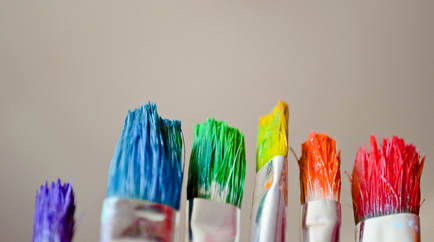 Mix media If you're a writer, try your hand at painting. If you're a musician, write a story. Push beyond your comfort zone, and you'll exercise new creative muscles. In the process, you're bound to encounter other creative types and benefit from cross-fertilization. (For more on crossover creativity, see this blog post from last summer.) 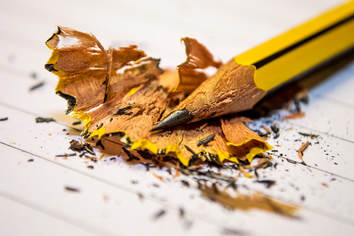 Establish a routine, then break it A regular warm-up routine—say, sharpening pencils, doing a few stretches, reading something inspiring—can be a wake-up call to your muse. But be sure your routine fits your rhythms. Maybe you're at your creative best first thing in the morning; maybe you don't get fired up until after midnight. Find your personal golden hours and make the best of them. That said, don't be afraid to shake things up from time to time. While routine can get you in the zone, monotony can turn you into a drone. For years, my morning routine has been some combination of meditation, yoga, reading over breakfast, then buckling down on whatever writing project I have in the works. But lately I've been altering the pattern—sometimes taking my camera out on the back porch for an hour or so before breakfast, sometimes doing my yoga just before lunch, sometimes writing in the evening. It's amazing how refreshing those small changes have been! 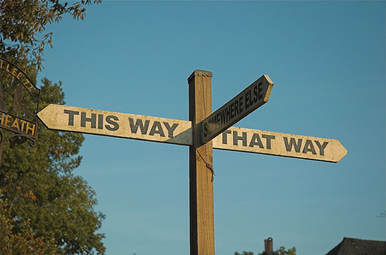 Embrace uncertainty Decisions, decisions—every creative project seems to require a slew of them. Should I start my novel at the beginning of the heroine's ordeal or midway through? Should I add one more image to this collage or take one away? The urge to make a choice and move on is powerful, but sometimes it's best to sit with the uncertainty as long as you can. As one of my writing mentors advised, "Don't be afraid to get in there and make a mess." Eventually, clarity will come. 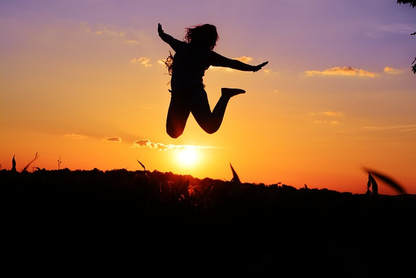 Have fun! Your creations may not be all sunbeams and rainbows—how boring that would be! But whatever you're creating, I hope the process brings you satisfaction and a sense of joy. For me—and I'm guessing I'm not alone—joy is the juice that keeps the muse amused. What are you creating this summer? What are your favorite ways of summoning your muse? SOURCES "A Few Short Rules on Being Creative," by Thierry Dufay, HuffPost, August 14, 2014. "18 Habits of Highly Creative People," by Carolyn Gregoire, HuffPost, November 15, 2015. "How to Be More Creative," A.J. Jacobs, Real Simple. "9 Ways to Become More Creative in the Next 10 Minutes," by Larry Kim, Inc.com, August 11, 2014. "7 UP: These 7 simple exercises will build core strength in your creative muscles," by Gabriela Pereria, Writer's Digest, September 2017. "The Benefits of Daydreaming: A new study indicates that daydreamers are better at remembering information in the face of distraction," by Joseph Stromberg, Smithsonian.com, April 3, 2012. "30 Tips to Rejuvenate Your Creativity," by Joel Falconer, Lifehack. All but the first two images on this page are free-use, stock images.
I've been to reunions. I've been to festivals. I've even, in my day, been to a fair number of hippie love-ins, be-ins and other gatherings of the tribes. But nothing quite compares to Creekfest, an annual event hosted by our friends Paul and Valerie. 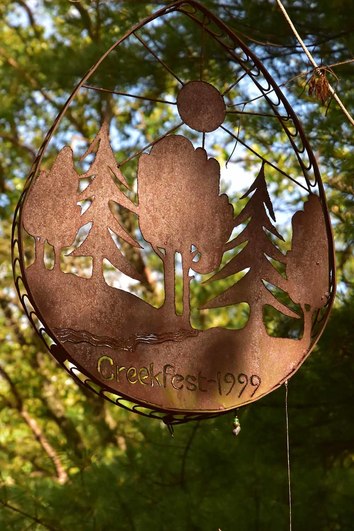 Now in its 25th year, Creekfest is a reunion of "kin," who may or may not be related in a strict genetic sense, but who all share genes for enjoyment of good music, good food and good times. 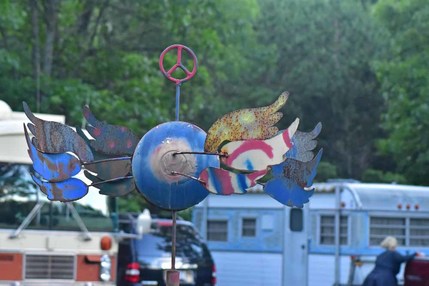 Imaginative art work adorns even the camping areas Imaginative art work adorns even the camping areas Held on Paul and Valerie's wooded property on Coolbough Creek, the event goes on for a full weekend, with many of the 150-200 or so attendees camping on the premises. 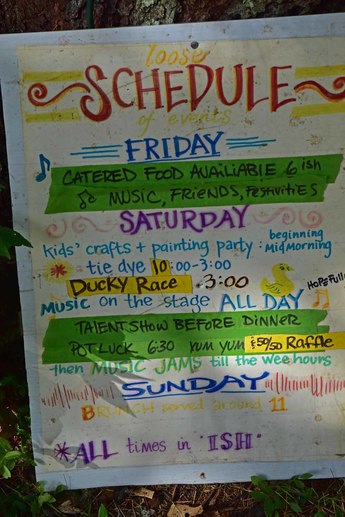 This year's Creekfest schedule This year's Creekfest schedule Things get rolling Friday evening, when local chef Tracy Murrell offers Thai specialties. Music and merriment typically follow. 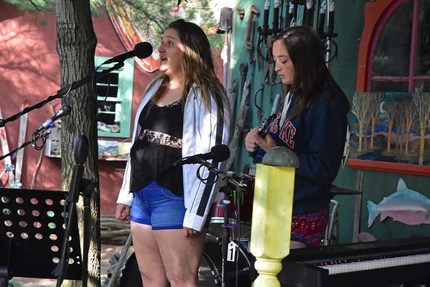 Creekfest's got talent! Creekfest's got talent! Saturday is activity-packed, with a kids' craft and painting party, tie-dye for anyone who wants to get colorful, and a rubber ducky race on the creek. This year, Ray and I arrived just in time for the tail-end of the pre-dinner talent show, an impressive display of musicality by youngsters and not-so-youngsters. 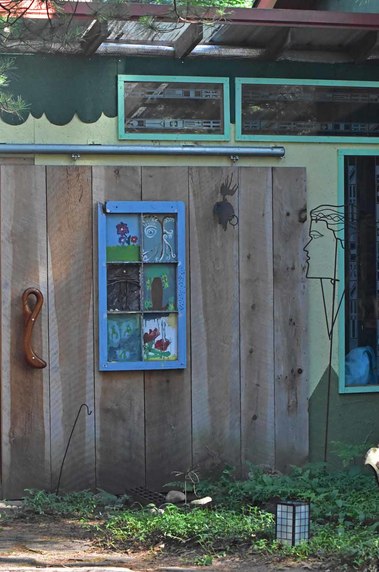 The setting is part of the appeal The setting is part of the appeal Part of the fun is just taking in the setting. The "cabin," its additions and outbuildings have been constructed over the years with the help of friends. And everywhere you look are Paul and Valerie's creative touches, from Paul's metal sculptures to Valerie's moss gardens, to various intriguing objets d'art placed here and there. You could wander around for days and still not see everything. After Saturday's talent show came a potluck to top all potlucks. I swear the spread was half a block long. Well, maybe not quite, but it just kept on going. All the dishes got rave reviews, especially one beet salad with goat cheese and walnuts. (Did you make that, Erin? We all want the recipe!) 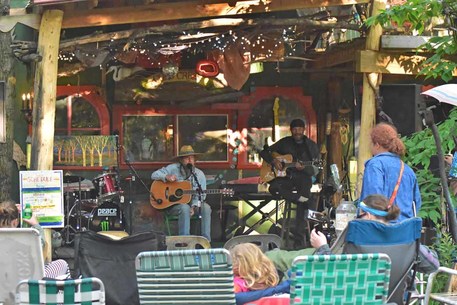 The beat goes on The beat goes on Still more music followed, and went on until the early morning hours, long after we'd gone home to bed. We would've stayed longer, but Ray had another festive event to attend the next day—a car show in New Hudson—and he wanted to be up by 4 a.m., about the time things wound down at Creekfest. Once the weekend was over, I asked Valerie (who twenty years ago declared herself Creekfest Queen) for her thoughts about this year and all the years leading up to it. 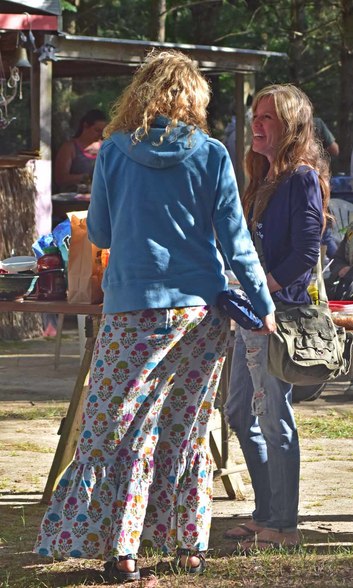 A best-ever moment A best-ever moment "For one reason or another, each Creekfest is the best ever," she says. "Sometimes I've had to stretch a bit to say that, but each year has its best-ever moments, this year included." Every year also has its share of "oh, s**t" moments, this year included. Like when Valerie lost her birthday kazoo at the ducky race and dropped her iPad into the creek. But by last Tuesday, when I touched base with her, The Queen was chipper as ever and recalling the best-ever moments as well. 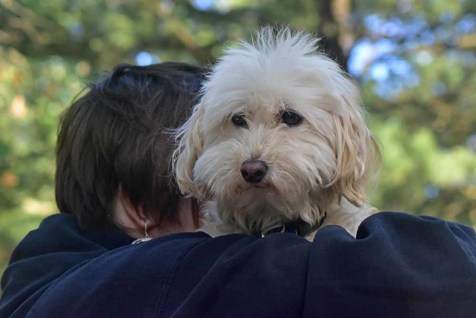 Dogs and kids add to the fun Dogs and kids add to the fun "The music, the kids, our kinship and love, the camaraderie. Even the dogs keep things fun and lively." Another highlight: Creekfest's first-ever silent auction, which helped defray expenses—higher this year due to some necessary repairs and replacements. "We were ravaged by rodents last year," says Valerie. "They took down our inverter for the solar, the generator that pumps our water, the golf cart. They got into the wiring and trashed things." 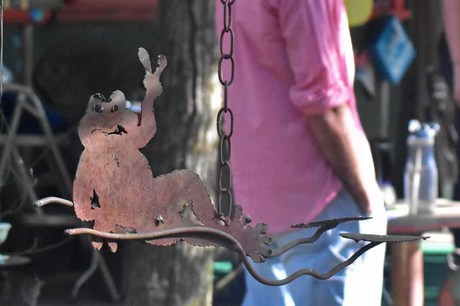 Until next year, Peace Out! Until next year, Peace Out! All things considered, though, this year was the best ever. And next year? Better still. Do you have an annual event with its share of best-ever moments? What makes you look forward to it? More scenes from Creekfest . . .
|
Written from the heart,
from the heart of the woods Read the introduction to HeartWood here.
Available now!Author
Nan Sanders Pokerwinski, a former journalist, writes memoir and personal essays, makes collages and likes to play outside. She lives in West Michigan with her husband, Ray. Archives
April 2022
Categories
All
|
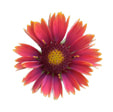
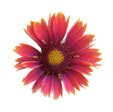
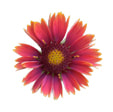
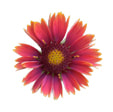
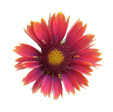
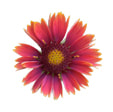
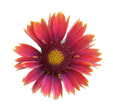
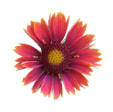
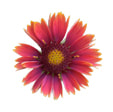
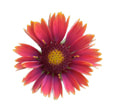
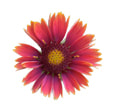
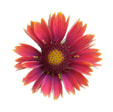
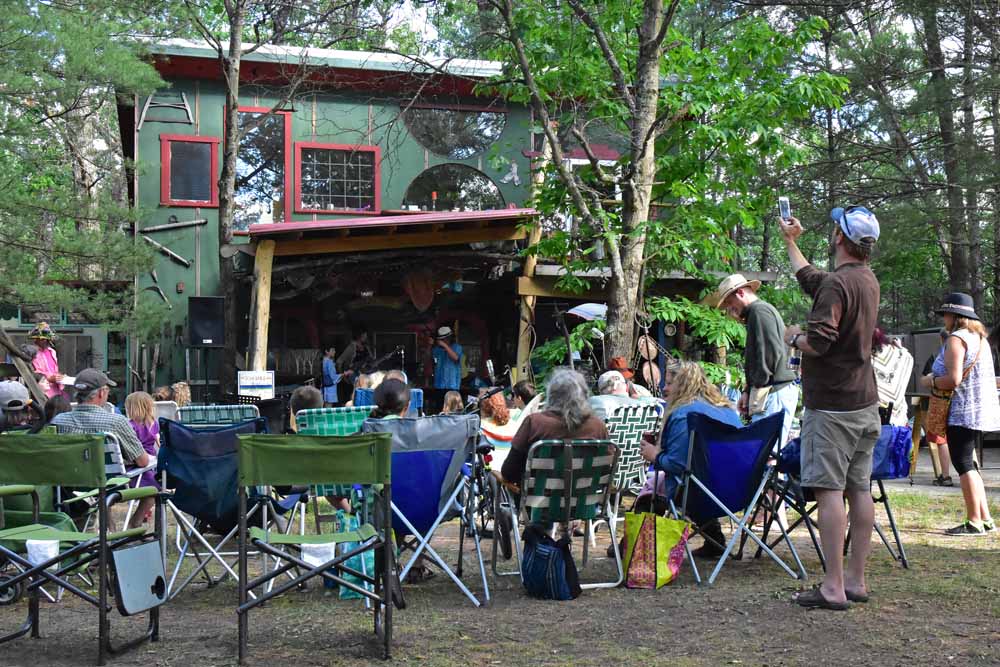
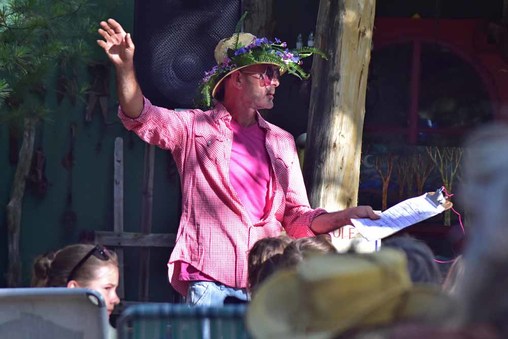
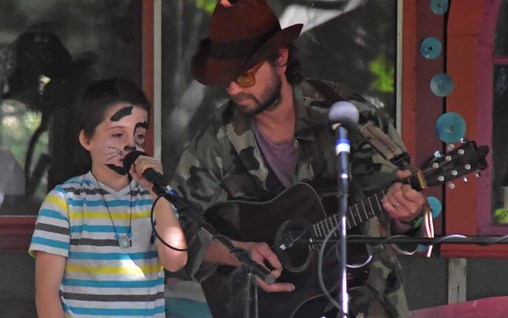
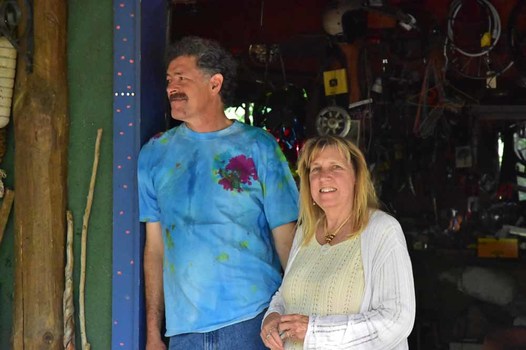
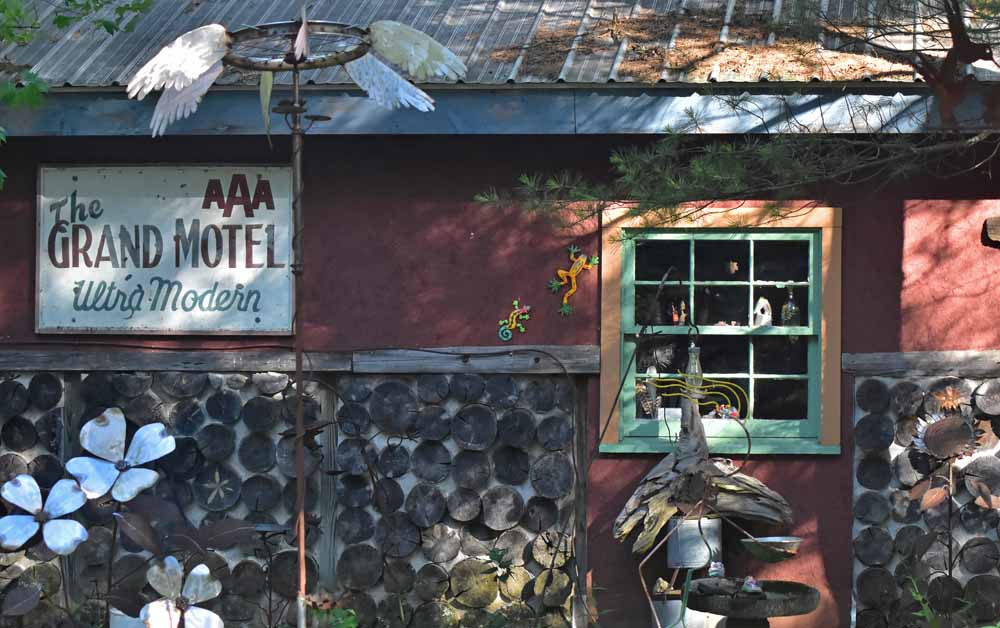
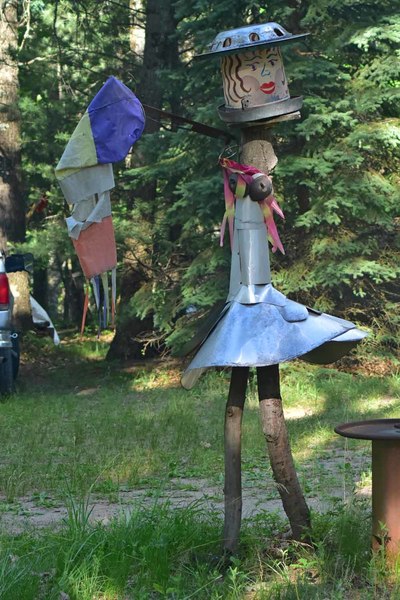
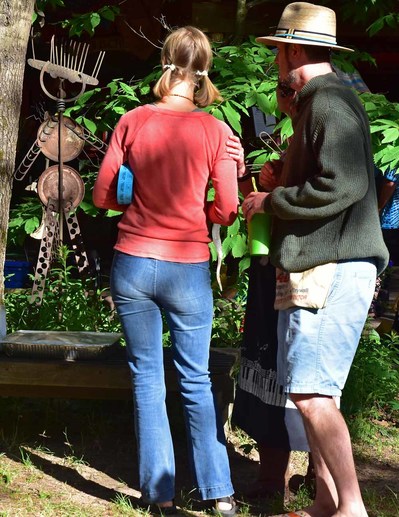
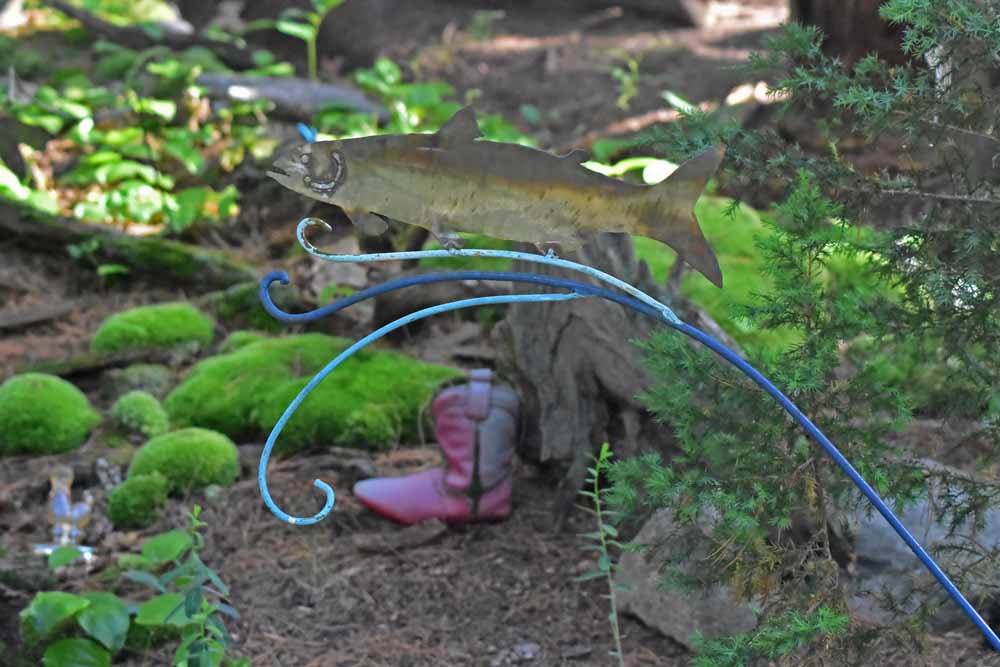
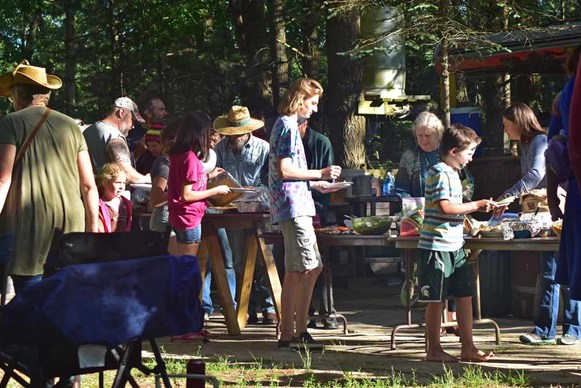
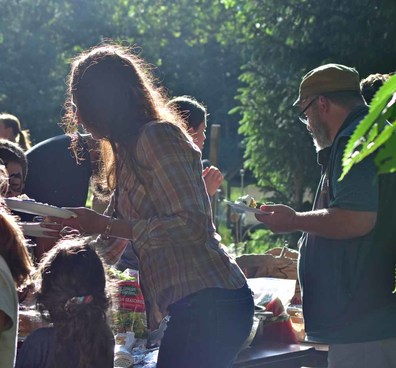
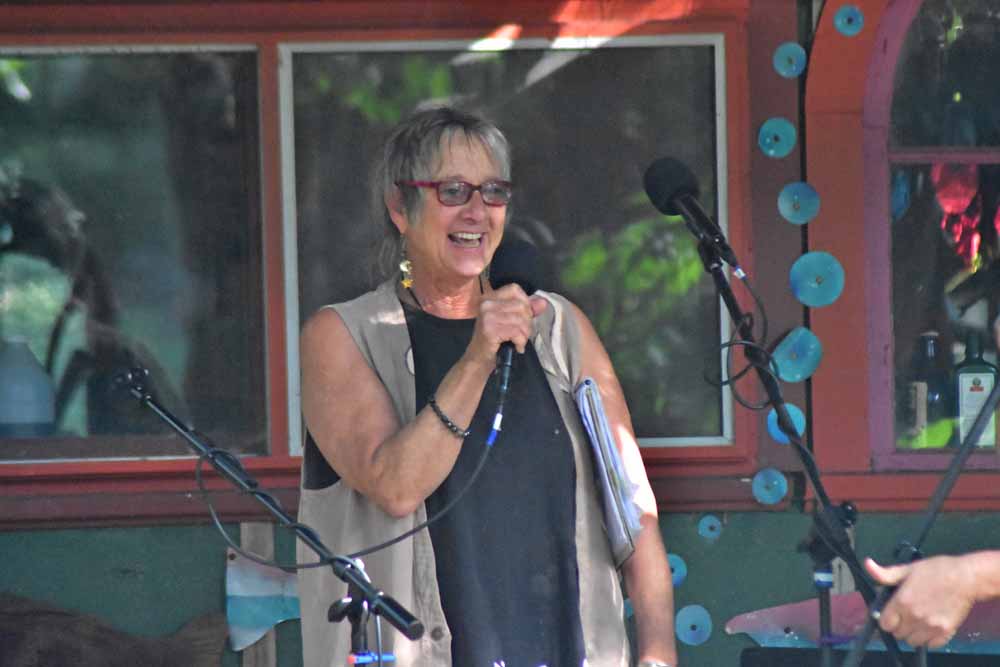
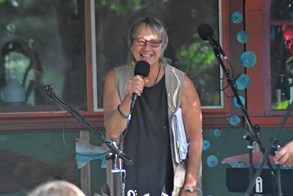
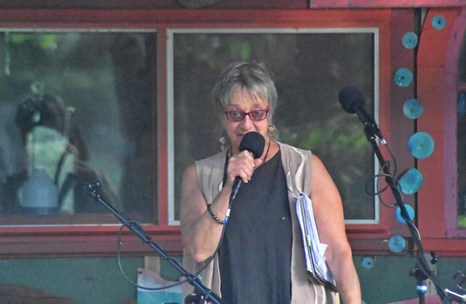
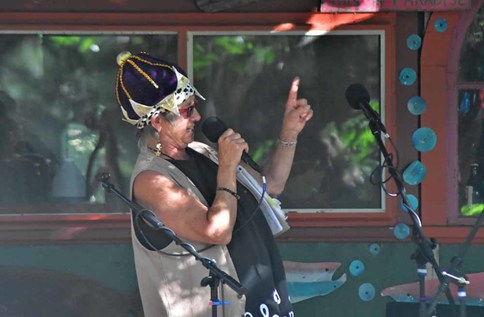
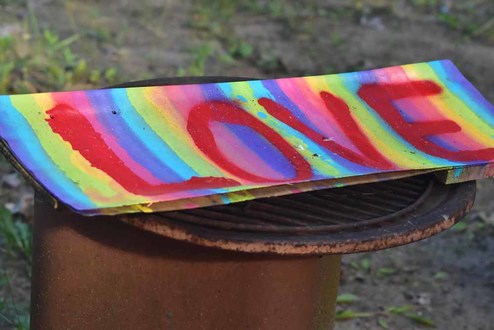
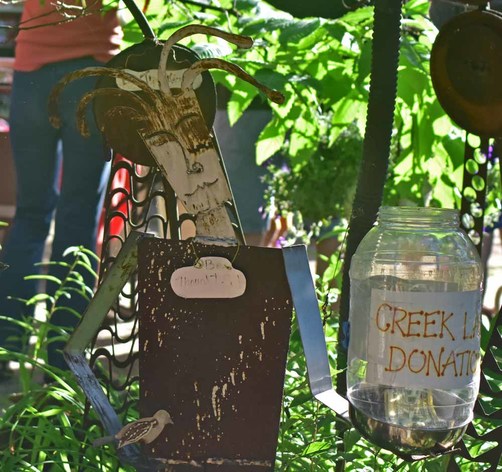
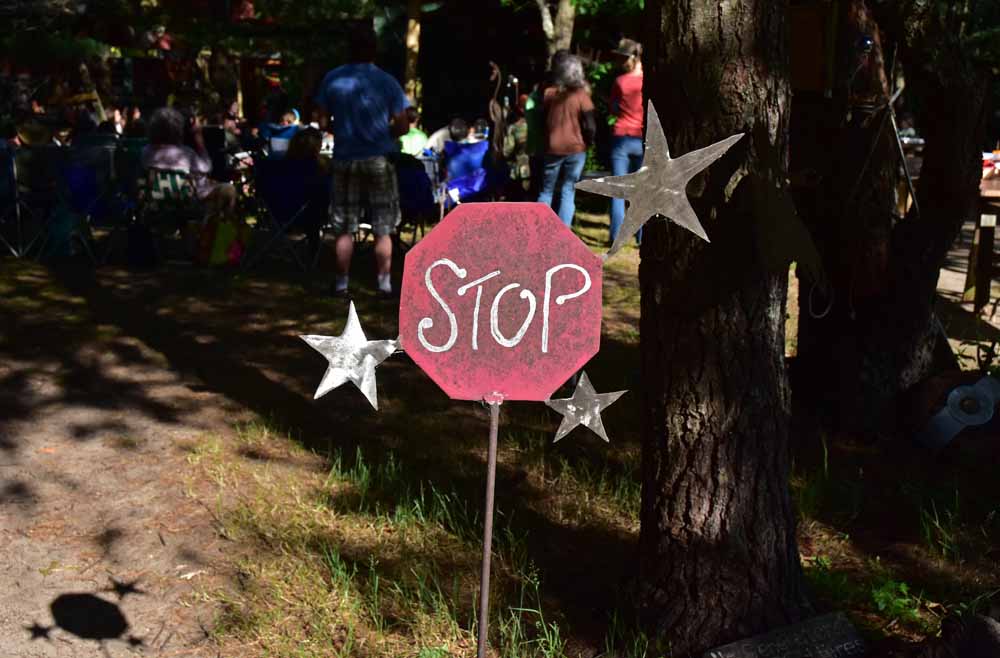
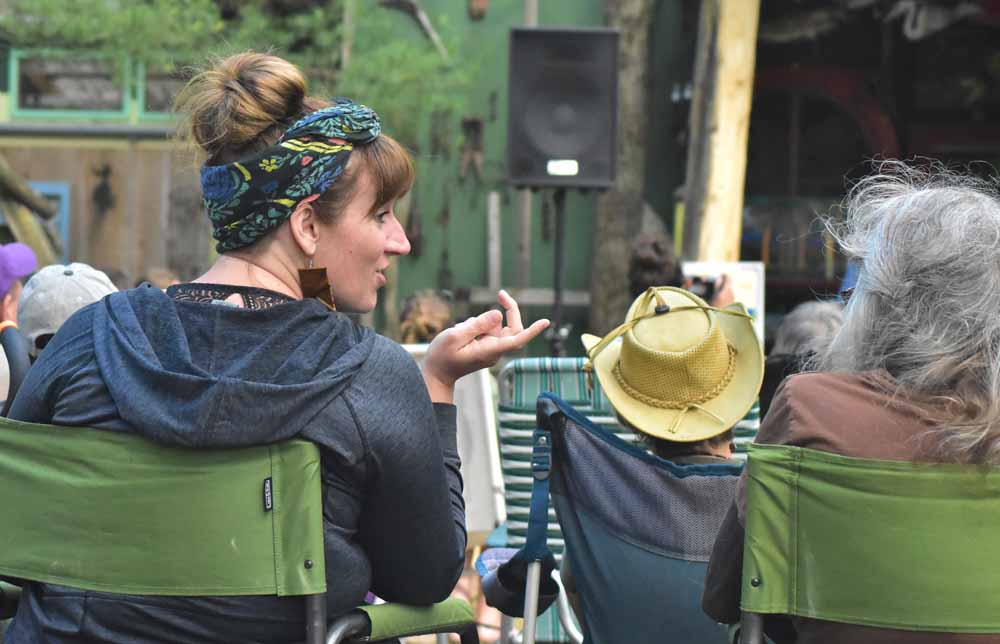
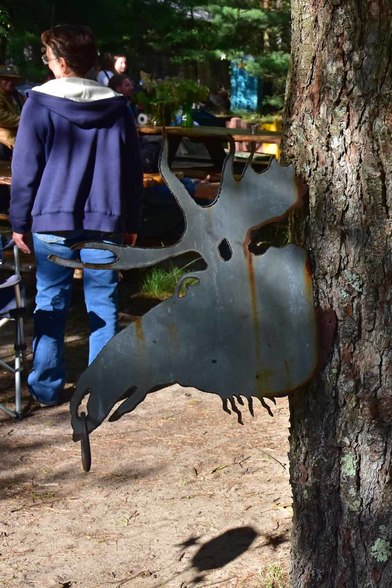
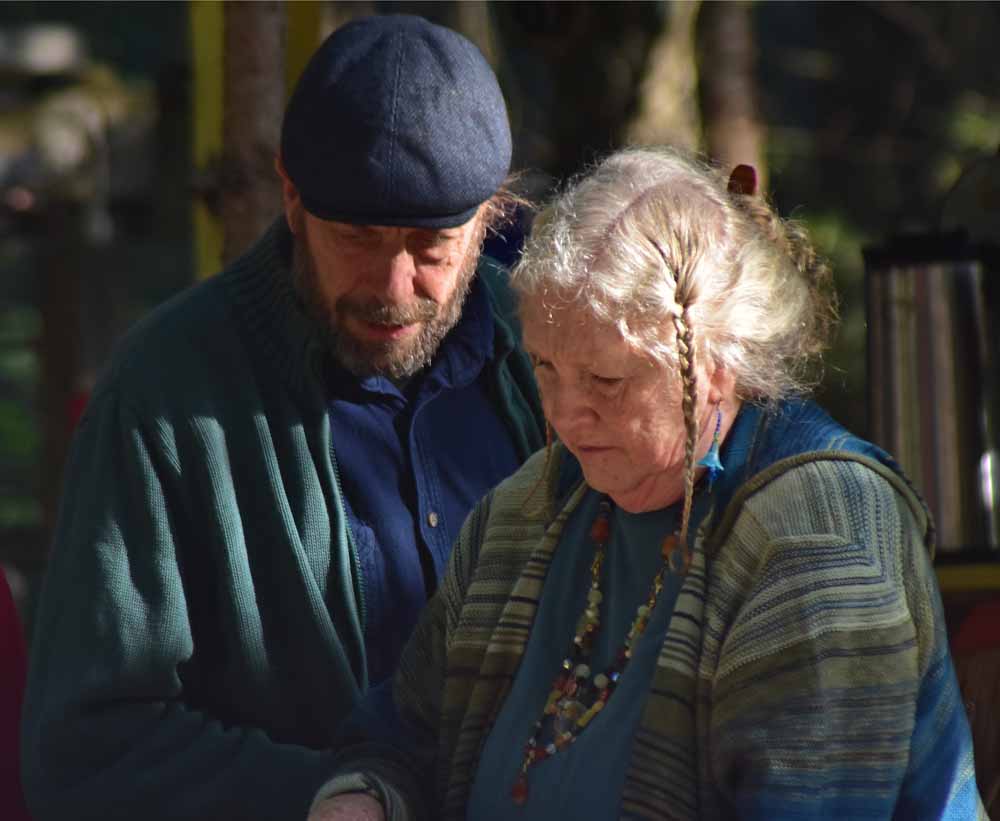
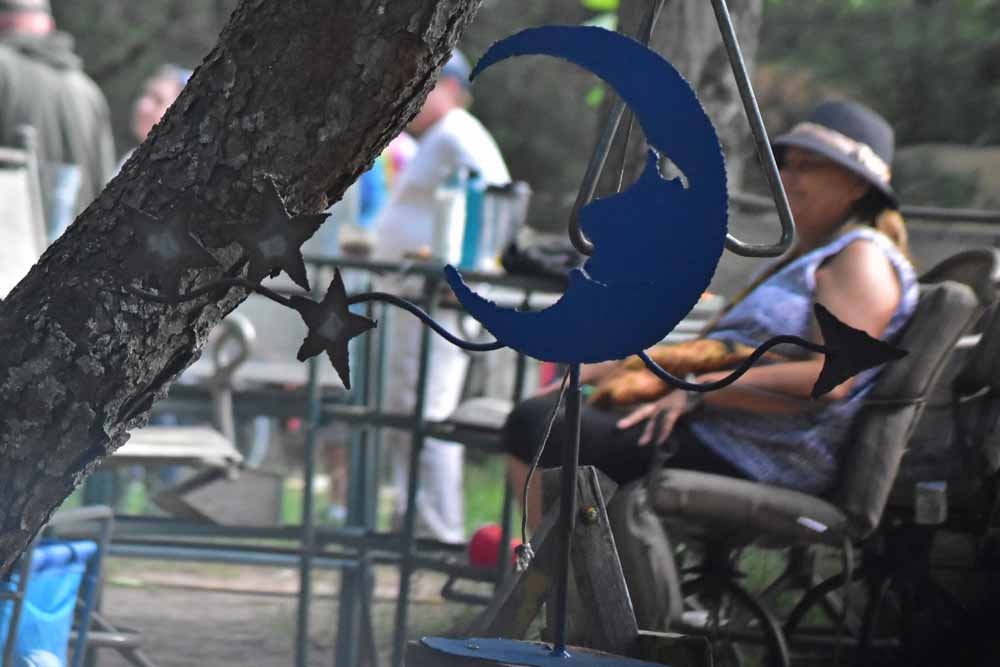
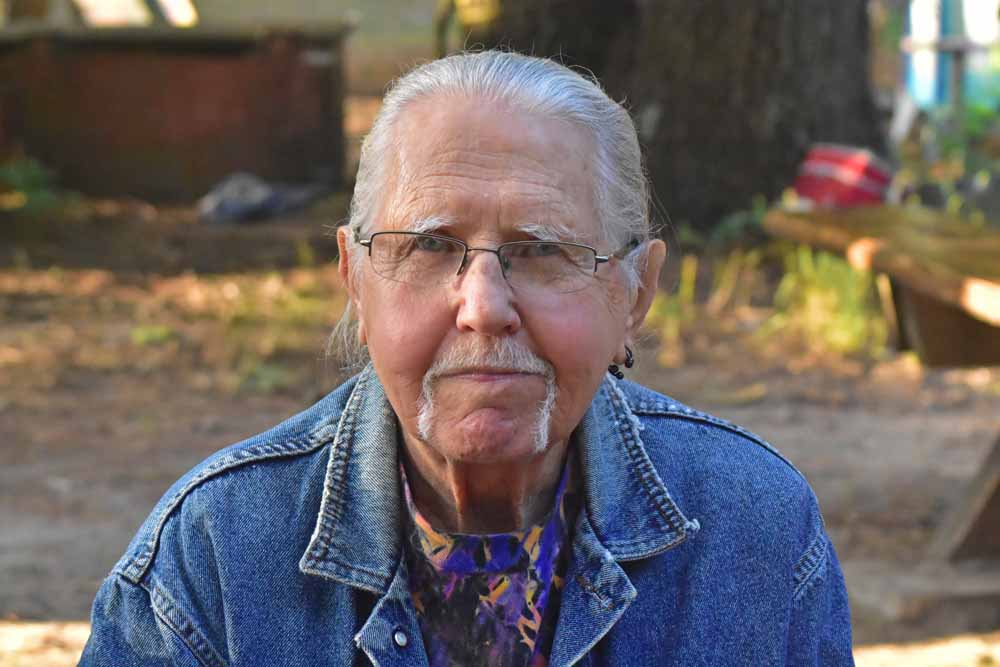
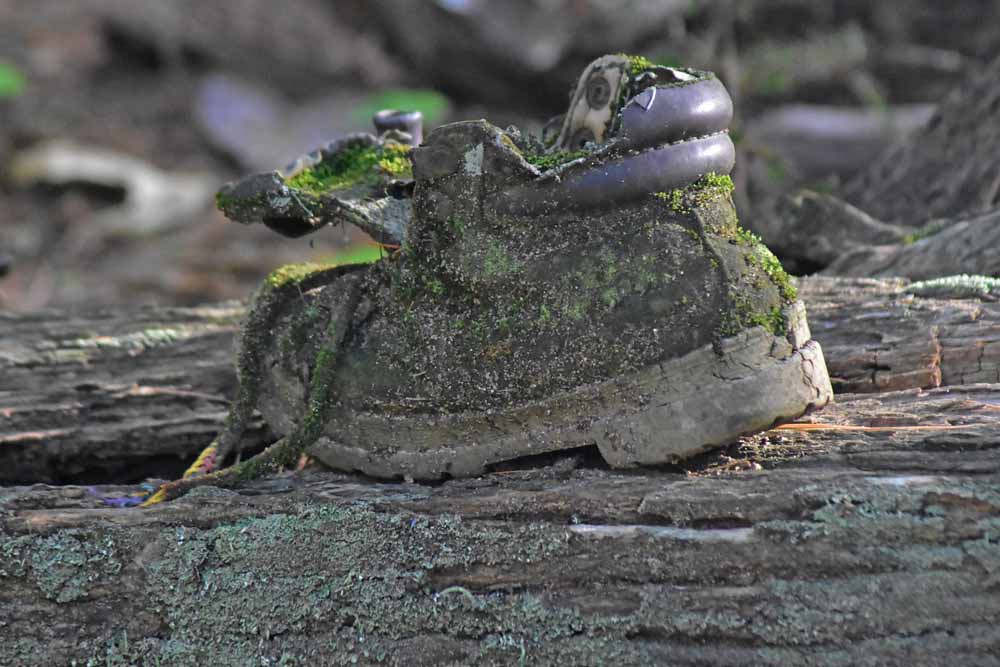
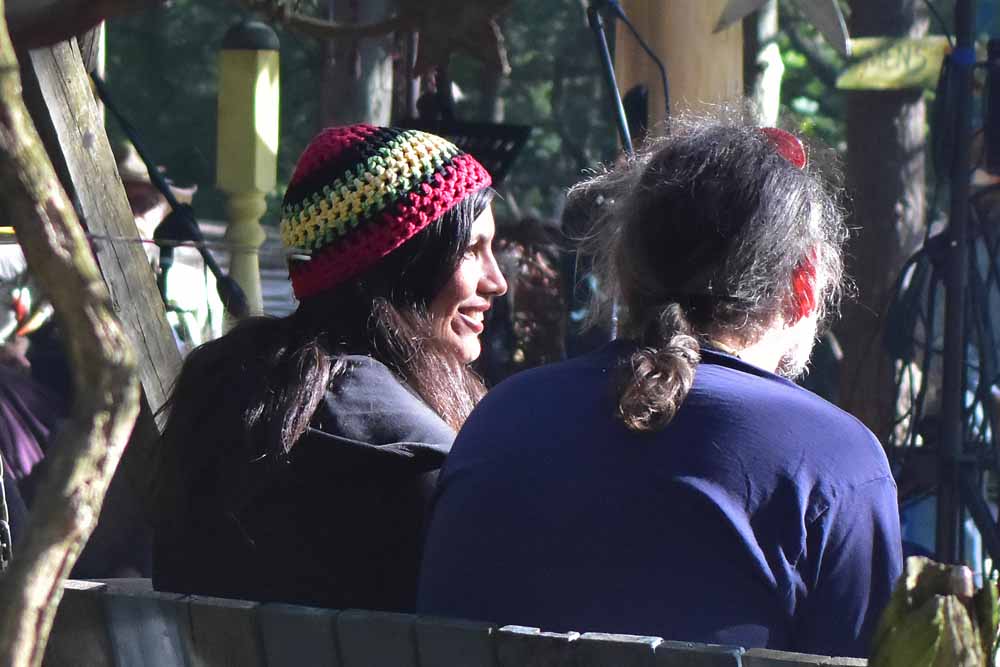
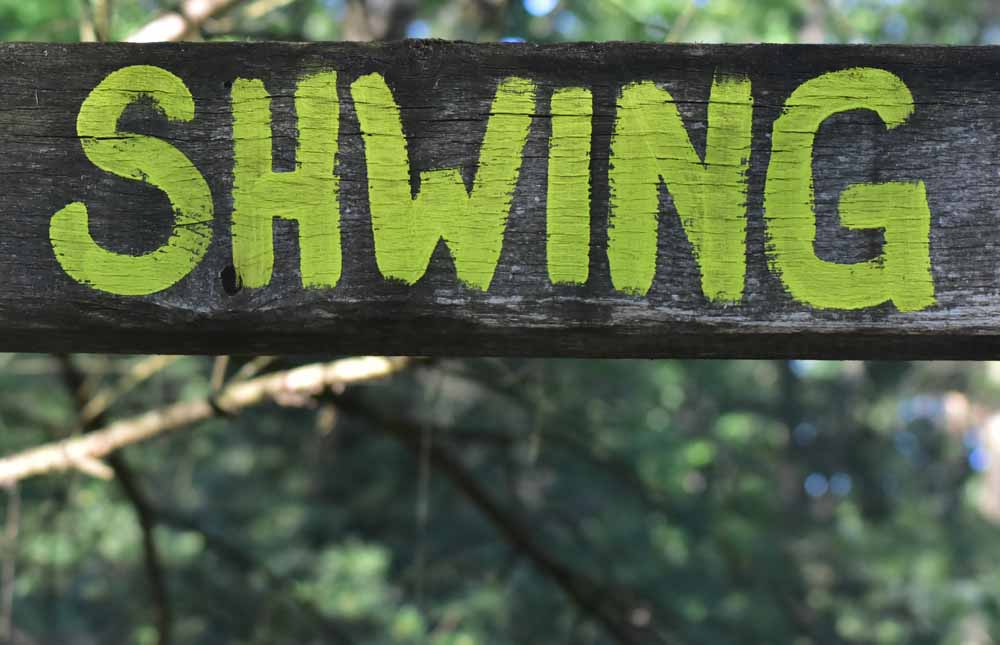
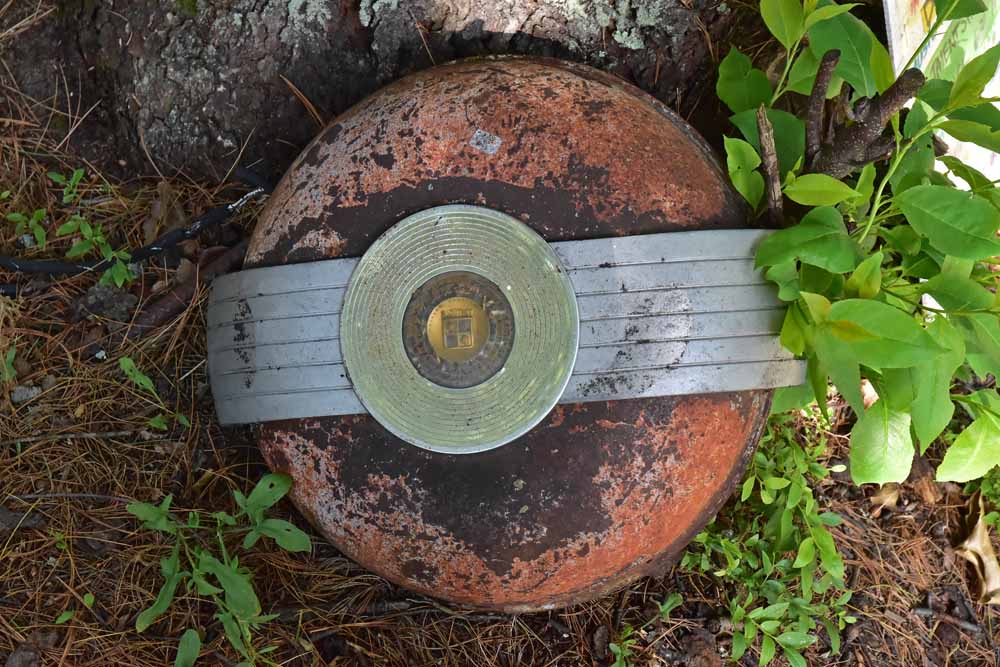
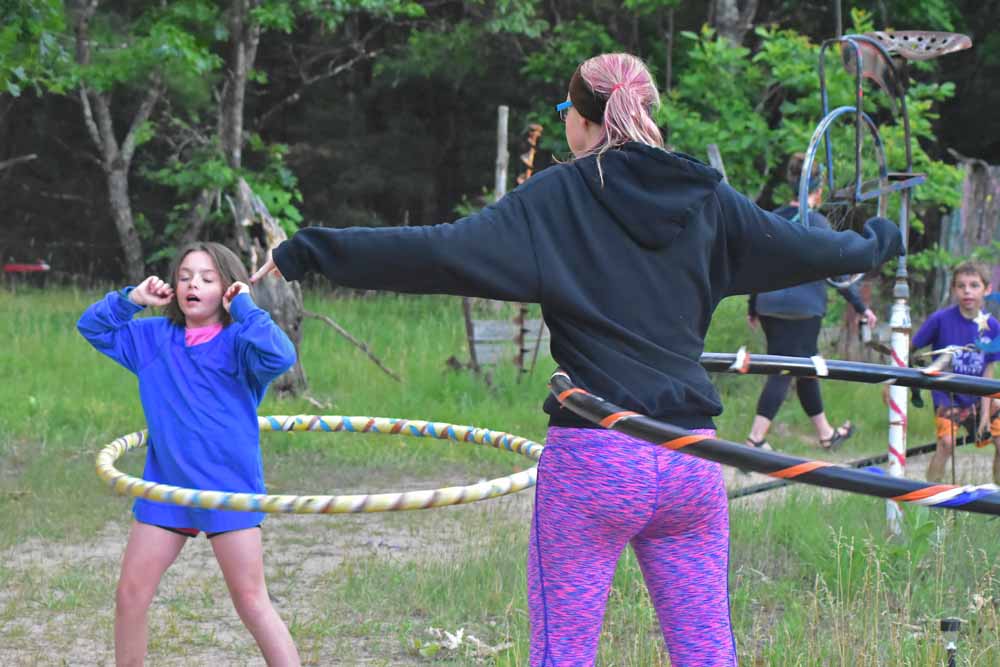
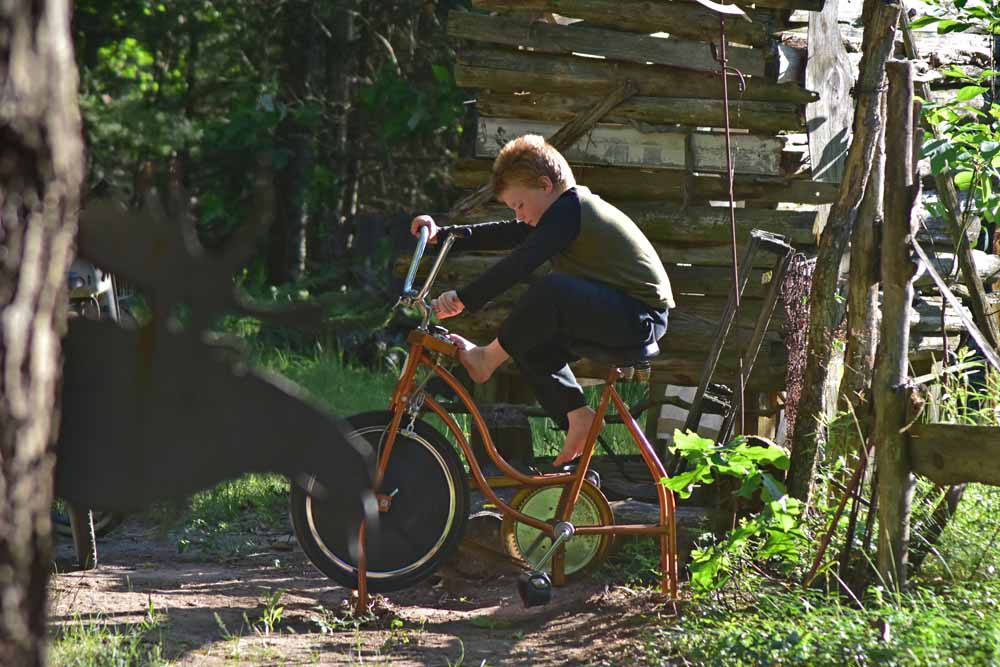
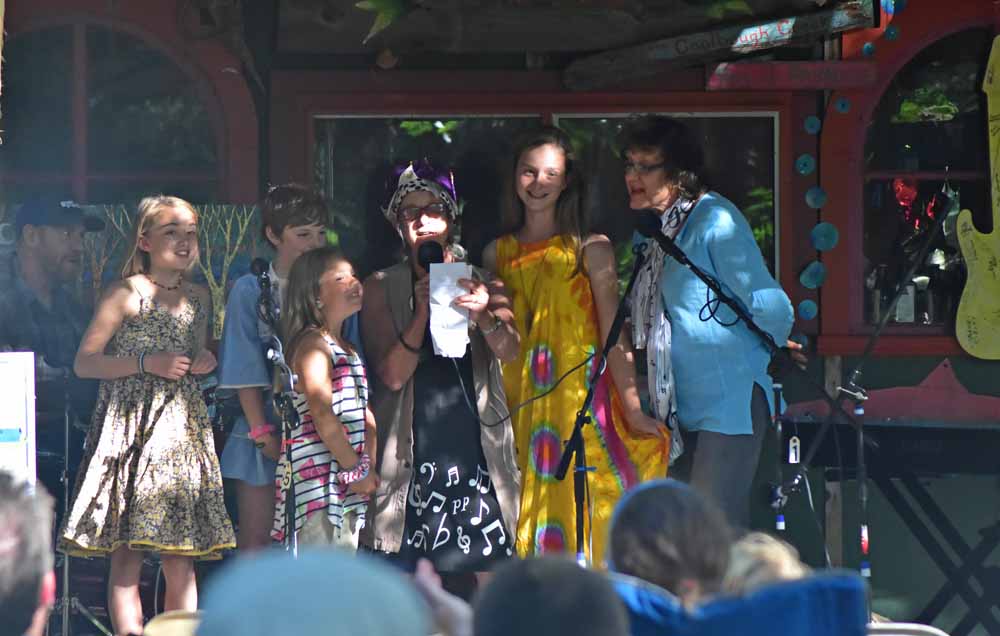
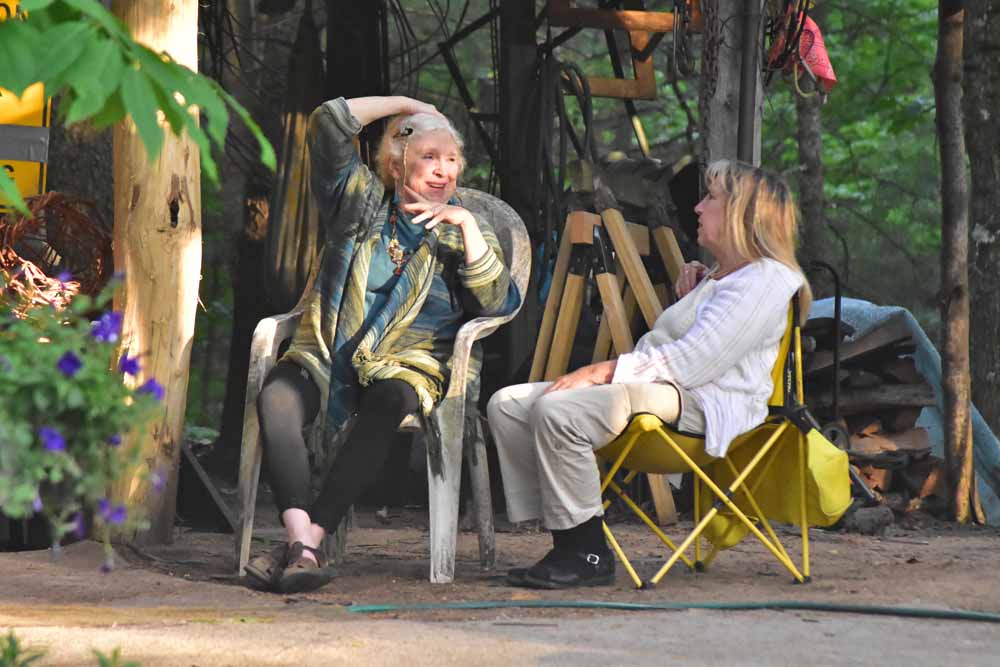
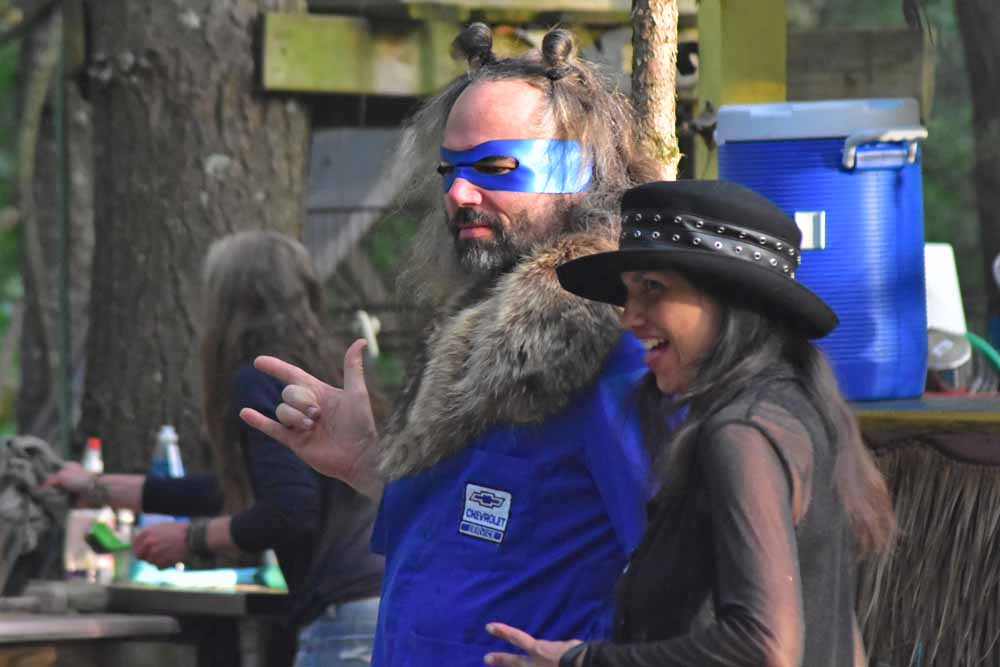
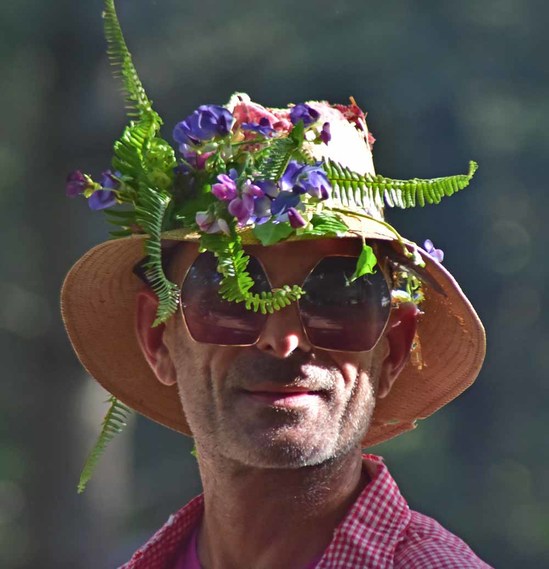
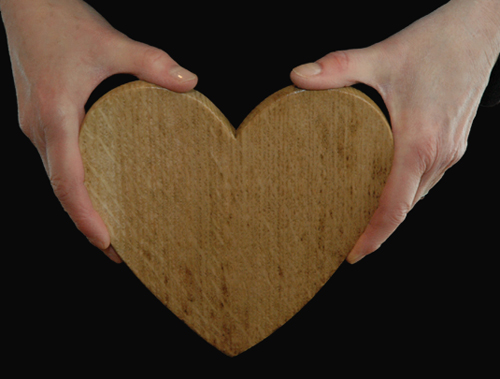
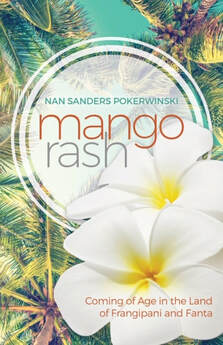
 RSS Feed
RSS Feed